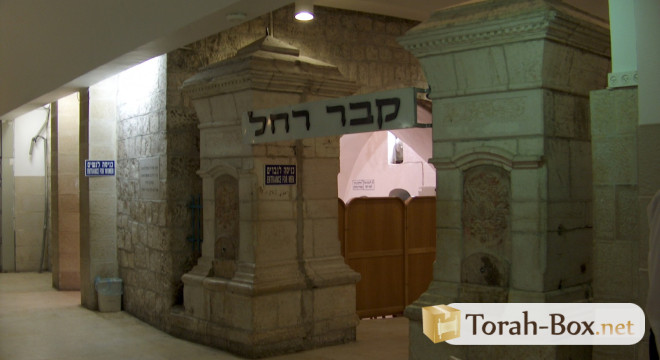
Our Sages
The Greatness of Rachel Imeinu
Every figure which marked the history of the Jewish people seeks to convey a specific message, by exemplifying a particular Midda (character trait). As we are now the 11th of Cheshvan, and this, in honor of the Yahrzeit (anniversary of passing) of our matriarch and pioneer of the Jewish people, Rachel, let’s discuss her journey as well as the legacy she left us.
Firstly, we must know that Rachel only lived until age 36, while living a life of closeness to Hashem, and of great sacrifices. Yaakov, her husband, had to work 7 years in order to marry her, yet her father, Lavan, who was a very mean person, wronged him and decided that he was to marry Lea instead, pretending that the latter was the eldest child. Indeed, Rachel was Yaakov's beloved, but out of love and mercy for her sister Lea, she let her marry him before. Rachel in fact revealed the Simanim (signs) to her sister (which were established with Yaakov beforehand to make sure it was really her), so she would not be humiliated in front of Yaakov.
Rachel is the one who advocated the most for the Jewish people, and who begged Hashem to protect us and not overwhelm us with hardships in Galut (exile). While the Temple was destroyed, Rachel implored Hashem, saying:
“Master of the Universe, You know that Yaakov loved me the most and that he worked for seven years for my father to marry me. And when the wedding came, my father substituted my sister in my place, but I did not hold grudges to my sister and I didn’t let her be humiliated. If me, a simple human being, did not let my sister be humiliated to obtain what I wanted, how can You, Eternal G-d, living and merciful One, be jealous of idols that do not exist, of this idol worshipping that is meaningless, and allow my children to be sent in exile?!” Out of all the other patriarchs who implored G-d, Rachel was the only one to be answered favorably. It is in fact her who is buried in Beit Lechem, as opposed to Mearat Hamachpela, just like the other patriarchs and matriarchs, so that her children can reach her tomb more easily and pray.
The Midrash tells that Rachel’s selflessness teaches us a fundamental principle, that of silence. Knowing when keeping quiet for others’ benefit, and accepting the fact that one’s moment of glory did not yet arrive. This is one of Rachel Imeinu numerous virtues. Furthermore, Rachel’s unprecedented modesty is directly linked to the Midda of silence that she possesses. Indeed, Tzniut (modesty) is inextricably linked to the manner in which we express ourselves, and therefore, to speech. The more we speak and the more we are overwhelmed with superficiality. In contrast, the more one seeks to live hidden, the more one will reach one’s interiority and higher realms. Yet, we must be aware that Judaism does not preach to remain silent endlessly! Yet we must know that all truths are not necessarily appropriate to be revealed… especially when we know it will hurt our fellow.
In the occasion of Rachel Imeinu Yahrzeit, let’s pray that we infuse ourselves with her incredible modesty, as well as her sensitivity towards others. As Bnot Yisrael, it is essential that we work on both our external and internal modesty. This is expressed in several ways, such as the balance between speech and silence. May our integrity be high enough so that we be able to assess which areas we must work on, especially on the character trait of silence. May Rachel Imeinu merit propel you to your greatest potential!
- « Years of Absence: Rav Ovadia Yosef and His Many Facets
- Rachel Imeinu: The Embodiment of a Jewish Mother »
Torah-Box.net Account
To access the entire Torah-Box.net website, sign up for free in less than a minute.
Weekly Parsha
 Candle Lighting - New York
Candle Lighting - New York
Friday May 2nd, 2025 at 19:35 *Shabbat ends at 20:40 *
change my location
* Times given as an indication, check the times of your community











